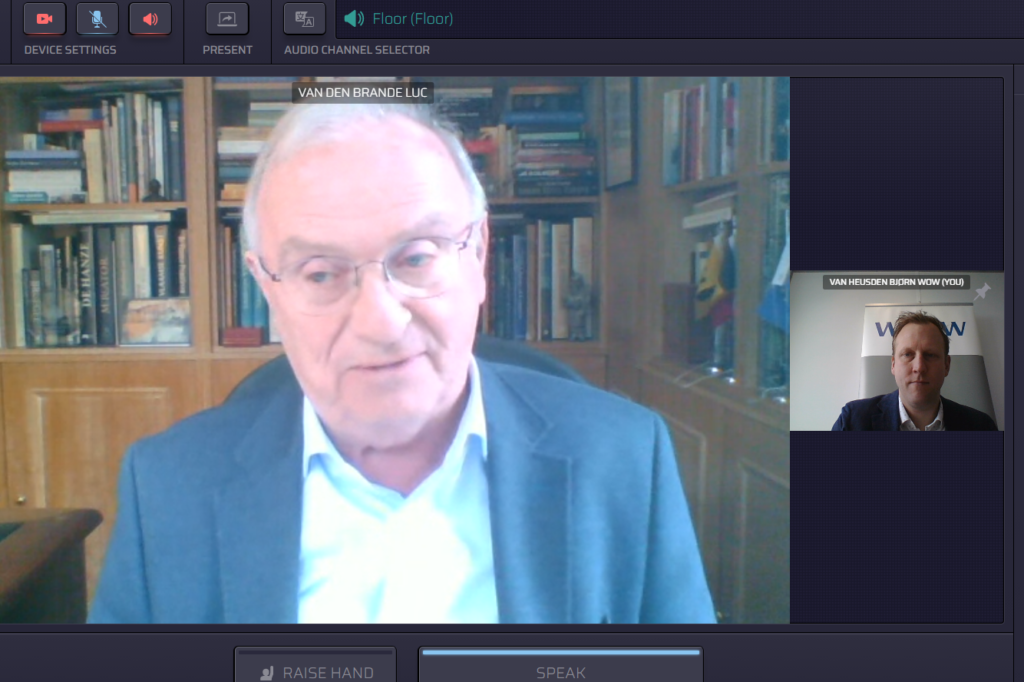The future is unpredictable. Although there are expectancies the exact future is uncertain. The same can be said about the world of work. Today the uncertainty is more than ever. The rapid changes in the world of work, the types of jobs that are vanishing and emerging and the speed in which this happens is unprecedented. What we learn today in school may well be obsolete the moment we enter the labour-market.
Lifelong learning is the key. Education offered should be constantly revised and adapted to answer the needs of the day/moment. Education and training became an important point of the Lisbon Treaty which was signed in 2000. The system was to be a reference for quality by 2010. The focus on quality and the importance it was given shows that education and lifelong learning was perceived as pivotal. And this an ongoing process. Lifelong learning is key for a union that perceives itself as a union of knowledge.
Of course education is more than just knowledge. It gives value to the person. It gives people a sense of belonging and power. Power over one’s own future. Because knowledge gives power and autonomy.
This was the topic of a one-day seminar which took online on 05 February 2021. Approximately 60 trade union leaders from 22 European countries discussed the importance of Lifelong learning. The seminar, organized by Krifa (Denmark), the World Organization of Workers (WOW) in cooperation with the European Centre for Workers’ Questions (EZA) and supported by the European Commission showed that countries and governments must make strategies on how to further promote and incorporate Lifelong learning.
Krifa’s president Mr. Søren Fibiger Olesen opened the seminar by welcoming all participants to this online seminar. As a result of the COVID-19 pandemic life-events are not possible and it is not possible to travel. Hans Christian Andersen once said that “to travel is to live”. This does not mean that one who does not travel does not live. But for H.C. Andersen traveling enriched his life. In that sense one can also say that “learning is living”. When a person learns new things and in the end masters these things this results in a happier person. To educate oneself is to increase one’s possibilities.
EZA President Mr. Luc Van den Brande confirmed the importance of Lifelong learning. Still far too many people lag behind which will lead to difficulties in the future. ‘We cannot disconnect Lifelong learning with the global world in which we live. Through EZA we are offering training and projects, but often this is predominantly for those who are already educated.’ Van den Brande emphasized that the vision of dialogue among society’s institutions is one of the most important factors in succeeding in solving the challenges, including with a large crowd of people in the EU who do not have a long education, but who have to learn throughout life.
Ms. Martina Ní Cheallaigh, Senior Expert for vocational training and adult learning at the European Commission in her presentation titled “Recent EU policy supporting lifelong learning” started with Ursula Von der Leyen’s thoughts on “Leaving no one behind”. When we realize that in the EU approx. 50 million adults are illiterate, that the level of drop-outs is still far too high, and that here are many millions of people who do not have an education after primary school, one becomes aware that there is much work to be done. Certainly also since the objectives set for adult upskilling by 2025 will by no means be met. Education is very important to prevent gaps between those who can and those who cannot. Too often education is perceived as a personal objective, but governments and countries should realize that they should come with a strategy for « skills » throughout life.
There are numerous initiatives already promoting further learning. For example, there is talk of « Micro-credentials » – that is, the idea that people should be able to be certified also for smaller courses and activities that contain learning. This validation system is still missing. Not all learning is through formal means. In France and the Netherlands, there is talk about « personal learning accounts » for employees. She also mentioned Euro Pass / Euro-CV, which is an opportunity to create a CV that can be used across Europe. Important for many is the role and need of guidance. The same with online courses. This is often fine for those who already posses certain skills, but for others this may be very problematic.
In “Change calls for new competencies, and everyone´s competences should count. Nordic vision of becoming the most sustainable, integrated and competitive region”, Ms. Antra Carlsen, Head-coordinator of the Nordic Network for Adult Learning spoke of the benefits of a shared Nordic and shared EU cooperation and aim to achieve this by 2030. Learning from each other has proven very beneficial. She acknowledged the fact that the Nordic countries’ have a rather large public sectors and thus a good economy behind initiatives. This is a benefit. Lifelong learning is an area that is generally focused on, but things do not happen by themselves. There is a need for overall strategies, economics and cooperation within a country, but also across countries. The increased focus on technology requires people to train to stay in jobs. What can be seen in the Nordic countries is that generally people are quite motivated for learning. This is often related to number of years that they spent at school while young. Despite the general high level of education there is still a separation in the workforce visible. This separation will only increase with the further diminishing of low-skill jobs. Every stake-holder should focus on the importance of Lifelong learning.
Ms. Gina Ebner, Secretary General, European Association for the Education of Adults, could not agree more with the importance of networks and cooperation. In her presentation “Lifelong learning – the key for the future” she stressed the importance of learning. We are all part of a large knowledge society. Lifelong learning is one of the tools to tackle some of the major issues in Europe such as inequality, immigration challenges, climate, radicalization and youth unemployment. Unfortunately there are certain vulnerable groups in society that do not see relevance in education. No matter how much knowledge there is out there about the needs and developments, a larger group has an attitude that it does not apply to them. A new method is to create a curriculum / education plan around the person, instead of showing the person what to learn or how important it is for society. The more you participate in education, and the more you learn, the more important the person experiences that learning is important.
The last speaker Ms. Ellen Boeren, Professor, School of Education, University of Glasgow spoke of the recognition of participation in lifelong learning as an important factor for knowledge, economic growth and also non-economic welfare as well as individual happiness. Het presentation titled “Investigating participation in adult learning in light of the covid-19 crisis” showed that there are big differences between the different regions on Europe when it comes to education in general and Lifelong learning more in particular. Concerning the motivation for further learning she explained that a psychologist would blame the lack of motivation; the sociologist would blame the lack of social mobility; an economist would look at the costs and who would pay for it, while social policy blames the tax systems which are unfavorable for some groups in society. People need to see the benefits for themselves. What is in it for them? This is not always evident.
Lifelong learning is a strong focus of the current European Commission as well as the previous ones. But the concept is not always implemented well enough. This differs much per region, but also in some countries there is traditionally not so much focus on Lifelong learning. This is changing, but it may lead to further differences in society. How to deal with this will be a challenge. Learning in that sense is truly living. Trade unions definitely have a role to play and they already do through offering courses and informing their members and workers in general about the importance of continuous education. It is clear though that we are from how we want things to be so there is much to do.





